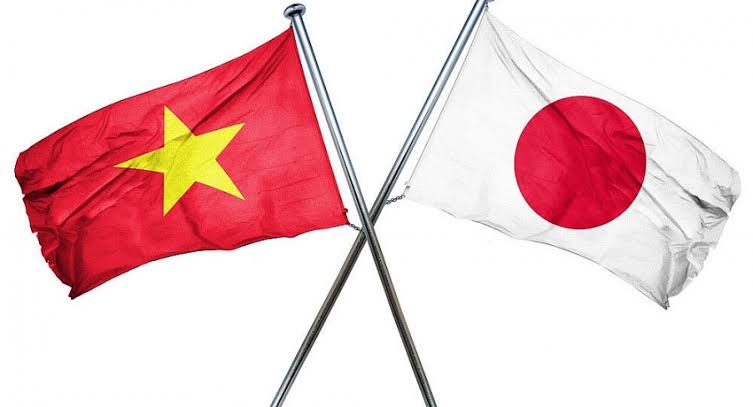by Nguyễn Thị Huyền Trang
In recent years, the economic and cultural ties between Vietnam and Japan have become increasingly close. The number of Vietnamese living and working in Japan has increased dramatically in recent years. As more and more Japanese companies and corporations build branches to work in Vietnam. But cultural differences are always a barrier for any foreigner.

Communication
The first difference is the culture of communication. Japanese people often use phrases like “thank you” and “apologize” when talking to others. This has also surprised many first-time visitors to Japan. Meanwhile, Vietnamese people only say thank you when they receive a favor or help and only apologize when they feel that they have made others annoying.

Also with a mindset to avoid offending others, Japanese rarely say “no” to other people unfriendly. Instead, they often talk limbo, around and expect the other person to communicate. They do not express their emotions and thoughts clearly, but always keep them at a very vague limit. Therefore, it is not easy to know what the other person is thinking and feeling. For Vietnamese thinking, frankly speaking, is the way to prove your honesty to the other person.

If in Vietnam, the way of greeting is expressed through a handshake (between friends and colleagues) in the first meetings, meeting with long-time friends, congratulations and mediation. To shake hands to show goodwill among people who communicate with each other, and this is considered one of the cultural beauty of Vietnamese people. Or pat (close friend, employer – employee) or rub the head (adult for children)
In contrast, the Japanese often do not touch the opponent’s body and bow deeply as a way to show respect and instead of greeting others. This is the unwritten rule of the Japanese, “people below” always have to greet “people above” first. For older people, your senior should bow deep 90 degrees, and with peers you can bow 30 degrees.

Punctuality
If you’ve ever been in contact with and worked with Japanese people, you probably know what punctual Japanese culture is like. This is easy to see when you take the subway in the land of cherry blossoms, departure time and time of the train to the station right to the minute, every second or when you have an appointment with Japan, they will always arrive early. appointment at least 5 minutes. Therefore, it is easy to see the image of Japanese hurriedly running to the train stations, hurried footsteps all the way to enlist to the right time for work, appointment time. Punctuality is a habit has been ingrained into the consciousness of Japanese people. Therefore, being late is considered impolite and disrespectful to the opposite person.

Meanwhile, the sense of time compliance in Vietnam is not properly appreciated. Being late to work, appointment time of 5-10 minutes is considered quite normal because it seems that this has been ingrained into Vietnamese lifestyle and habits. Therefore, the concept of elastic band is designed for individuals who are often late, do not appreciate time. Currently, this problem remains in every Vietnamese and has not been thoroughly solved.

Individualism _collectivism
The next difference that cannot be ignored is the consistency and collectivism.
Students in Japan from kindergarten to high school have an uniform, hundreds as one to avoid discrimination among students to help them be equal with each other and not waste time paying attention to each other’s appearance. When applying for a job or a job at an office, they usually wear the same basic black suit, the same style of shoes and hairstyles are often the same to avoid being seen as attractive to the opposite person.

In Japanese company, especially in the collective sense. They appreciate exchanging, sharing knowledge and solving problems together. They often do not value an individual but often appreciate the performance of a team because they think that success does not come from anyone individual but the efforts of a team.
In contrast, in Vietnam, previous students were dressed quite freely. Uniforms are usually white shirts – trousers, so depending on the family, depending on the conditions that the white shirts, counters will be sewn in many different styles. Today, schools have changed a lot to create equality for students by using uniforms, pants, and skirts. When working in Vietnamese companies, you will be dressed quite comfortably and show your personality. As long as your clothes are polite and suitable for the work environment.

At present, Vietnam in the workplace culture still highly values the ego of each individual.The teamwork spirit has not been emphasized. best results and rarely consult with colleagues or previous people. This will cause the team to lose solidarity and not bring the best results to the problem.
Conception
In ancient times, Japan was a matriarchal society where women played a bigger role than men. Although the spirit of liberation of women has been introduced to Japan since the late nineteenth century, now in community life, women are still lower than men and outside society. a little bigger role. Basic, female is still a person of “inside” (uchi no) and men are still people of “outside” (soto no). The scope of women is the family and housework, while the husband is the one who works and gives all the salary to the wife. In Japan, women rarely go to work, especially after getting married and even if they work, it is very difficult to get a high position like men. Although women have gone to work more in recent years, the number is still very low, with only 10% of Japanese women in charge of management, much lower than in other developed countries.
In folklore, Vietnamese people have a saying: “The first wife in the sky” or as “The field of deep buffalo is not equal to the first daughter”, … to express the position and role of the woman in the family and what This has come into the minds of Vietnamese husbands as a valuable recognition of traditional national culture. Not just before, but even now, that summarized record is still valid. In addition, the Vietnamese also attach importance to kinship relations. In Vietnam, women are often very independent and economically autonomous because they have their own careers. The proportion of Vietnamese women who go to work after marriage is very high and even those who are managers or general directors mostly married women.

References:
YouTube: https://youtu.be/hbsmmXeywM8
Facebook:
